Abstract: During the last couple years, laser-based additive manufacturing (AM) technologies such as laser powder bed fusion (LPBF) and directed energy deposition (DED) have evolved from a mere prototyping technology to a real production technology that allow building parts with intricate 3D geometries and new functionalities. The formation of phases, microstructure (e.g. grain size, grain shape, texture) and defects (e.g. hot cracks) in laser AMed parts are deter-mined by the thermal history during the multiple heating and rapid cooling during AM. Currently, the state-of-the-art commercial AM machines offer limited possibilities to control the heat flow and cooling rates and thereby influence the alloy microstructures and finally the part properties. One of the main research questions in our group is how the microstructure formation in alloys during laser-based AM can be controlled by adapting the alloy composition and/or by adapting the process. In this presentation, the results of some ongoing studies in this context at Empa will be presented. In particular, these are:
– Microstructure formation and manipulation during LPBF of a high-strength Al-Mg-Zr alloy
– Epitaxial growth during DED of Si pillars using pulsed laser and pre-heating.
– Site-specific control of microstructure and magnetic properties during LPBF of a high-nitrogen stainless steel.
Short bio: Dr. Christian Leinenbach
CL received his M.Sc. in Materials Science and Engineering from the University of Saarbrücken (DE) in 2000 and his PhD from the University of Kaiserslautern (DE) in 2004. He has been working at Empa since 2005, currently in the position of a Senior Scientist and Head of the Alloy Design for Advanced Processing Technologies (ADAPT) Group in Dubendorf and Thun, Switzerland. In addition, he is adjunct lecturer for materials processing at the École Polytechnique Fédérale de Lausanne (EPFL).
CL’s R&D work has been focusing on the simulation-assisted development/optimization and micro-structure design of structural alloys and metal-matrix composites, mainly for beam-based additive manufacturing and joining applications. Besides, he is interested in the characterization of the influ-ence of advanced processing technologies on the microstructure and properties of complex structural materials.
Recently, CL has been co-organizer of several symposia on materials for additive manufacturing at several international conferences in Europe, USA and Asia (e.g. TMS2018 and 2019, ICMAT 2019) and he is co-initiator of the Alloys for Additive Manufacturing Symposium, an annual international sympo-sium focusing on the material science aspects in AM. The work of CL and his group has received sever-al awards at international conferences (e.g. CALPHAD Award 2012 and 2015, Best Paper Award of the Alloy Phase Diagram International Commission (APDIC) 2013). Other distinctions include the Excellence Award of the University of Kaiserslautern 2005 for his Ph.D. thesis and the Empa Innovation Award 2014 for the development of a novel Fe-based shape memory alloy. He is member of the directory board of the Swiss Association for Materials Science and Technology and member of the Expert Group “Additive Manufacturing” of the Swiss Academy for Technical Sciences.

